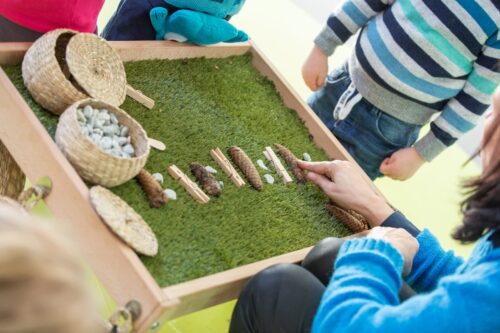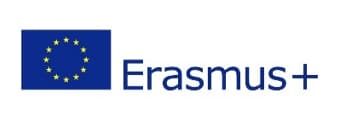
News
In the digitized learning content intended for preschool children, a separate section will be dedicated to the skills of reducing the consumption of energy resources and learning the skills of the “European Green Course” that can be applied on a daily basis
In the digital curriculum that was intended for preschool children, one of the sections will be dedicated to energy reduction ability and for learning the “European Green Course” skills that can be used in everyday life.
A work of experts of three countries- Norway, Latvia and Lithuania- is currently underway on the development of the content of digital teaching aids intended for pre-schools where one part will be dedicated for developing new skills that help children understand the principles of using and saving energy resources. Also, this section will include the principles of the “European Green Course” ideas, which children will be able to apply both in preschool and at home, helping their parents to save money. An expert in the digitization of educational materials from Lithuania/Norway emphasizes that the new, digital content for children will create a completely different income than what is probably currently available in the family, but, anyway, everybody will benefit from it, because this is how we teach children to respect the environment and resources, but at the same time, families will be able to save on water, energy and food costs, and reduce food waste.
The group of international experts on the creation of a new digitized curriculum was developed both this year and will continue its work in 2023. In this project, Norway is represented by the private preschool “Læringsverkstedet”, Lithuania by the Vilnius private preschool “Gintarelis”, and Latvia by the private preschool “CreaKids. The experts of each represented country develop their own area of competence in order to jointly create the content of modern and engaging digital learning tools for children.
The Lithuanian partners within the project are responsible for researching remote learning situations and developing solutions. The restrictions of Covid-19 were an important turning point, which clearly showed that in the field of preschool education, too, there is a need for learning content that a child can learn remotely. In conditions of long-term illness, which the child spends either at home or in a medical/rehabilitation institution, digital tools allow him to continue his studies and not lose contact with his preschool. Parents see this as a great solution, as preschool helps them with the difficulties of educating their child, relieving the parents of homeschooling as much as possible.
The task of the Norwegian partners is to develop a tool for assessing the emotional and physical development of preschool children. This is an extremely essential tool that a preschool teacher needs in planning the daily curriculum and shaping the child’s individual development. This approach does not compare one child to another and does not place, for example, the average abilities of age groups, but focuses on the skills that the child already knows how to do and what he is physically capable of doing, shaping his individual growth path. Latvia is developing digital learning content for changing habits, promoting nature protection, as well as building a child’s emotional well-being and the field of art.
Latvia is developing digital learning content for changing habits, promoting nature protection, as well as building a child’s emotional well-being and the field of art.
‘’”Save water by turning off the tap while brushing your teeth” – how many of us adults do this at home? “Turn off the light when you leave the room” – these are just some of the daily habits that, when changed, affect the consumption of energy resources and reduce costs. It seems like nothing, but if we compare it with the number of people in the family or preschool? With this learning approach and learning new skills, we are starting to build a generation that will look at nature, energy resources and saving in a completely different way than we do now. More importantly, how exactly will children learn it – not because of a sense of duty, but through exploration and play to understand how it works and what it does, ‘’ Daina Kājiņa, the coordinator of the digitized content development of Latvian preschool teaching aids, emphasizes.
‘’ For example, about the proper ventilation – you can tell that the premises must be ventilated in order to have fresh air and how to do it correctly. However, it will be remembered in a completely different way, and new habits will be formed for the child if the content of the curriculum teaches children these skills through research and experimentation. This opens up wide opportunities for research – how oxygen indicators change at different times of the day; what happens if we open the window only in ventilation mode; how quickly the room has an optimal oxygen level, if the room is properly ventilated – by fully opening the window; when does the floor become colder during ventilation – with a partially opened window or fully opened, etc. This is another example where children understand both causality and why they should do something, rather than seeing it as a requirement or obligation. Then it is much easier to strengthen it at the level of habits, but in terms of expenses, things start to decrease automatically,” emphasizes the expert.
As part of the project, sets of digital learning content with tasks for learning the preschool education program, will be developed, which will be available to all interested preschools in the country. Methodologies for evaluating the dynamics of children’s emotional and physical development will also be developed. Digital literacy manuals will also be developed for the teachers, thus promoting both support for the educator for the integration of digital tools in the learning material, and improving and training educators in the use of digital tools. An essential task is to develop an action plan, tasks and a model of cooperation in each member country between the preschool and the child’s family, in order to ensure a continuous educational process and provide contact during periods of distanced learning, quarantine or other reasons.
The project “Digital literacy in a preschool educational institution” is implemented from 2021-2023., with ERASMUS+ financial support.


 Log In
Log In